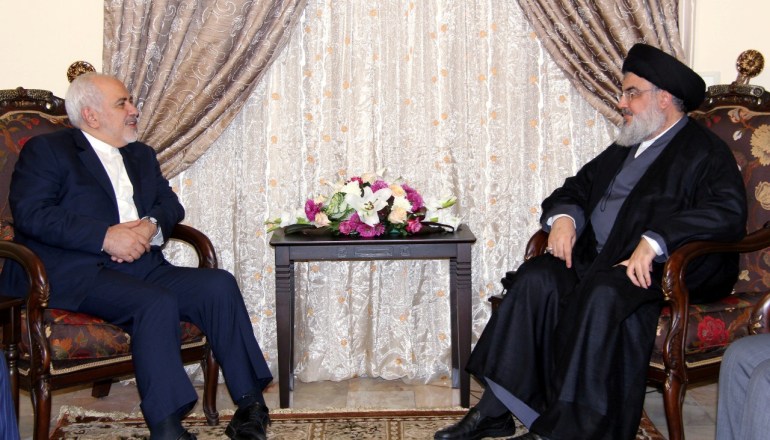The American Foreign Policy magazine said that Washington failed to understand the reason for the spread of Iranian influence in Lebanon and the measures necessary to stop it, especially in light of the suffocating economic crisis in the country and the increasing possibilities of slipping towards internal conflict.
The magazine believes that the decades of turmoil, assassinations, occupation and economic fragility that Lebanon has experienced were not as bad as the country is currently experiencing, as "the Lebanese can no longer even dream of a better tomorrow."
And she affirms that the Lebanese sectarian divisions are difficult to deal with, since the loyalty of most Lebanese is first and foremost to the sect, a situation that resulted from the legacy of discrimination that flourished for decades in the complete absence of any strong central government.
Moreover, Washington's policy of maximum pressure against Iran, and its ally Hezbollah, does not help at all to improve the situation and its repercussions directly on Lebanon and the Lebanese.
Banks have become without money, and power outages in the capital, Beirut, have become common. Several companies have closed their doors for lack of customers, and the minimum wage has decreased from about $ 450 a month to $ 80 at the present time.
Extreme pressure
The magazine stresses that weakening the Lebanese state through a policy of maximum pressure will not weaken Hezbollah, which is heavily armed with all kinds of weapons and who emerged "ecstatic" from an eight-year adventure in Syria that it sees as a "great victory". It led her to "actual rulers."
She adds that the fate of Lebanon "torn" in the foreseeable future will not be the outbreak of civil war, but rather dispersed the country to areas of local unrest and violence. In the absence of the state, any authority able to contain chaos will turn into the people's favorite authority.
At the same time, the current situation will be in the interest of Iran, which will strengthen its strength in the Lebanese interior as "the savior of the Shiite community", and the longer the crisis lasts, the more likely that Lebanon will actually become a "satellite state" of the Islamic Republic.
Tehran has already offered to sell oil and gasoline to the Lebanese government in local pounds - relieving the Lebanese government of the burden of falling the currency rate - as it has pledged on several occasions, that it is "subject to the signal" of the Lebanese authorities to supply the country with its electricity needs.
Foreign Policy asserts that the more pressure the United States places on Lebanon, the greater opportunities for Iran to exercise its authority and influence a fragmented state, which will not necessarily be through the Iranian government, but rather through Hezbollah, which pledged "not to let the Lebanese Shiites die of hunger" .
This seems to be starting to cause concern in Washington, where US Secretary of State Mike Pompeo made statements a few days ago in the same context about preventing Iran from selling oil to Lebanon.
But with Lebanon's rapid transformation into a failed state, the idea of creating a parallel economy for this country subject to sanctions is gaining momentum, and Tehran is tempted by this option despite its economic difficulties.
Washington Options
The magazine believes that both Iran and Hezbollah have a central role in the collective thinking of Lebanon's Shiites regarding the sectarian conflict in the region, so Washington is unlikely to be able to curb Tehran's influence, as previous attempts to empower Shiite civil society did not succeed, and the option of war cannot It creates a new reality without plunging the country into the worst.
However, there are options that may contribute to containing the growing Iranian influence. A different American approach to dealing with the Arab-Israeli conflict can help, and a new deal on Iran's nuclear file may save Lebanon and cause a breakthrough in Washington and Tehran’s future relations.
The magazine concludes that Lebanon should not be restricted and strangled through pressure campaigns that will not only increase the Shiites of Lebanon except Shiism and make them less loyal to their country, as are Sunnis, Druze and Christians.
Moreover, this approach will entice everyone to choose the easiest way, which is to escape and let Lebanon fall into the clutches of the unknown, but the Lebanese state - unlike individuals - cannot escape itself.

